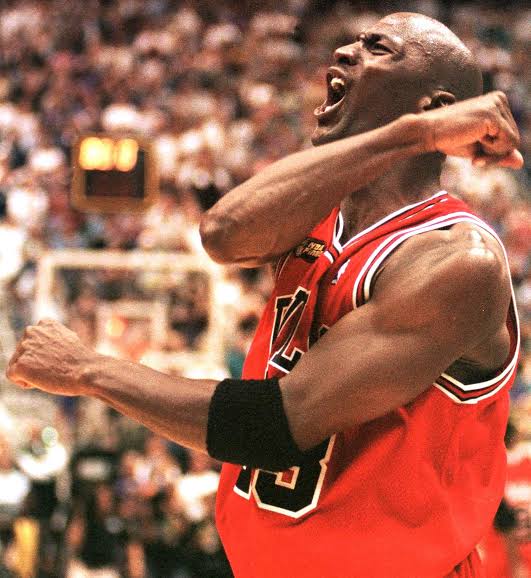Was Michael Jordan Overrated? The Uncomfortable Truth About His Legacy Without Scottie Pippen, Hall of Famers, or a Weak NBA Era
In the world of basketball, few names echo louder than Michael Jordan. He’s the icon, the cultural phenomenon, the so-called G.O.A.T. of the NBA. But behind the six rings, the shoe empire, and the highlight reels lies a narrative rarely spoken of—one that challenges the mainstream narrative and demands a re-examination of just how great Jordan really was without his Hall of Fame-caliber support.
Let’s start with the numbers that rarely make the ESPN highlight reel: Michael Jordan’s playoff record without Scottie Pippen? 1-9. That’s not a typo. Before Pippen became a co-star, Jordan was swept in consecutive playoff appearances. He was undoubtedly electrifying, scoring at will and dazzling fans—but the results didn’t translate into wins.
Many fans defend this early record as a result of weak teammates. That’s fair—until you realize that other legends often elevated lesser talent around them. LeBron James, for instance, carried teams with rosters nowhere near Jordan’s 1980s Bulls to the Finals multiple times. Kobe Bryant made deep playoff runs without Shaq. Tim Duncan won titles as his supporting cast aged.
Meanwhile, Jordan’s real championship push began when Scottie Pippen blossomed into a perennial All-Star, Dennis Rodman joined the party, and the Bulls benefited from Phil Jackson’s revolutionary triangle offense. Not to mention, one of the greatest benches ever assembled. When stripped of this elite infrastructure, Jordan’s track record tells a different story.
🔍 The Expansion Era Advantage
Let’s not forget the era Jordan dominated in. The 1990s NBA underwent major expansion—six new teams were added between 1988 and 1995. That diluted talent across the league. Legendary defenders from prior eras aged out, while the offensive skill of the league’s guards and wings was still developing.
In fact, the NBA moved the three-point line closer during the 1994-95 and 1995-96 seasons to boost scoring, because too many players—including many guards—couldn’t shoot efficiently from deep. Jordan’s midrange mastery was exceptional, no doubt, but the context made it easier for players like him to dominate.
🛑 The Rodman Factor
After a 1995 playoff loss to the Orlando Magic—with both Jordan and Pippen on the roster—Jordan personally advocated to bring in Dennis Rodman, one of the greatest rebounders and defenders of all time. And it worked. Rodman’s addition helped secure a second three-peat. But the very need for Rodman pokes holes in the myth of Jordan as a one-man army. When true competition arose, he recruited harder than anyone.
🔄 The “Team Did Better Without Him” Argument
Let’s talk about the 1993-94 Chicago Bulls. When Jordan retired for the first time, the narrative was that the team would collapse. Instead, they won 55 games and were a controversial call away from reaching the Eastern Conference Finals. It’s rare for a team to remain elite after losing a supposed once-in-a-generation superstar. That speaks volumes about the system and structure Jordan thrived in.
🗣️ The Myth of Carrying
Jordan’s defenders say he carried the Bulls. But did he? He never won a title without a Hall of Famer, never made the Finals without Phil Jackson, and needed the best role-playing cast of the ’90s to dominate. The “Jordan carried his team” narrative fades when you consider that nearly every other player in his shoes—without elite help—struggles. But unlike others, Jordan is immune to criticism.
🧠 Rewriting the Legacy?
This isn’t to say Michael Jordan wasn’t incredible. He redefined marketing in sports, played with unmatched intensity, and inspired generations. But being the greatest requires more than flair, scoring titles, and branding. It demands dominance in all contexts, not just ideal ones.
If we judge Jordan by the same standard we hold others to—context, era, teammates, and difficulty—his legacy begins to look a bit more complicated than the glossy ESPN documentaries suggest.
Maybe he’s still the GOAT.
Or maybe… he was the most protected.




















